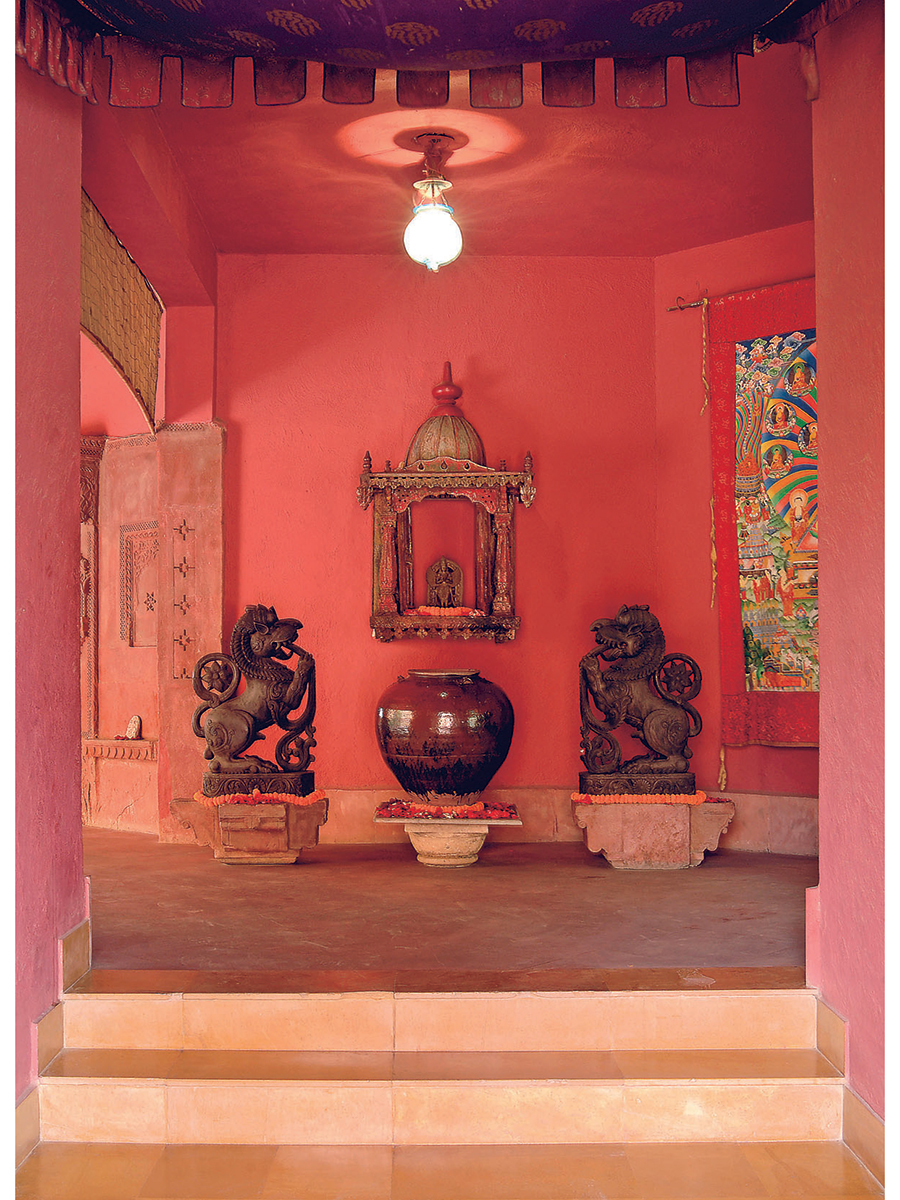Shrankhla Holecek doesn’t believe in bothering plants after sundown. Still, her fledgling business is going strong: Uma Oils’s organic beauty and wellness elixirs keep rarified company within the pages of glossy fashion magazines, and within high-end shops around the world.
But even the mandate to keep up with demand won’t convince Holecek to abandon a lifetime of Ayurvedic principles. To harvest crops after sundown, she explains, would be to “interfere with plant energy.” On Uma’s vast, 500-acre network of farms across Central India—which cultivate sandalwood, rosemary, jasmine, ginger, chamomile, and dozens of other botanicals—excellence and precision are just as important as “living in close harmony with the environment,” she says.
Ayurveda, the millennia-old healing philosophy whose name is formed from the Sanskrit words ayur (life) and veda (knowledge, science), has guided Holecek’s family for generations. Eight hundred years ago, her ancestors served as the Ayurvedic physicians for India’s royal family; 100 years ago, they started applying those practices to the essential-oils manufacturing business. “We’ve always believed that nature works in concert with your body to support you, and that we must do our part to put harmony back into nature,” she says.
When Holecek moved from India to Los Angeles, in 2007, to earn her MBA from UCLA, she noticed something on visits to the farmers’ market. “People would quiz a farmer when they were buying three dollars’ worth of tomatoes,” she recalls. “But when they were buying a jar of skin cream, they had no way of knowing where the ingredients came from or how they were raised. The chain of command was completely lost.”
Last spring, fueled by a “unique opportunity to lead the transparency movement and offer a peek behind the kimono,” Holecek left a position at the consulting firm McKinsey & Company to found Uma, naming the “farm-to-bottle” concept after the beloved late aunt who raised her and her sister outside New Delhi. “I didn’t ever see her wear makeup, but she was truly beautiful enough to make heads turn,” Holecek says. “Many of our guiding principles are representative of her ethos: the beauty of simplicity—the beauty from within.”
By founding the first retail brand within her parents’ B2B conglomerate—an industry juggernaut that supplies brands such as Tom Ford and Estée Lauder with essential oils for their perfumes—Holecek has ushered deeply held Ayurvedic traditions straight into the vanities of modern consumers who care that their anti-aging eye treatments and brightening face masks were sustainably produced. Likewise, Uma’s hand-blown, hand-decorated bottles are decidedly contemporary, with a bold, block-lettered logo overlaid on Holecek’s sister’s line drawings, which depict the main botanical ingredient.
Yet for all the modern touches, heritage remains a driving force. Uma’s oils are still made by hand in small batches. Roses are still delicately laid out, single file, on open expanses of farmland, and left to dry in the sun. Holecek safeguards her formulas with the proud secrecy of a winemaker; to patent them would be to make them public. She continues to take inspiration from the way her parents have always done business: Uma employs women from the rural villages surrounding its farms and distilleries, and teaches them the vocational skills needed to turn the waste from oil production into incense. In fact, women make up over half of Uma’s workforce.
Holecek, who lives with her husband in Beverly Hills, travels back to India every couple of months to see her family; check in on her staff of farmers, factory workers, and Ayurvedic experts; and pass through New Delhi. “That’s where one can go and soak in the modern world in India,” she says, adding, “Everything cool happens in Delhi.”




